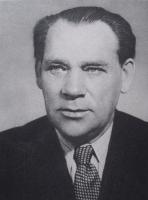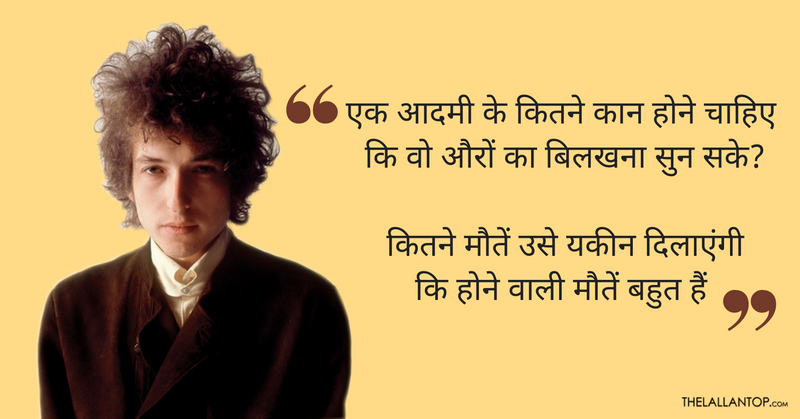Warszawianka 1905 roku [Варшавянка; La Varsovienne; ¡A las barricadas!]
![Warszawianka 1905 roku [Варшавянка; La Varsovienne; ¡A las barricadas!]](img/thumb/c6506_130x140.jpeg?1328189496)
1ו. वर्षाव्यंका (La Warszawianka in Hindi, scritta da Spalvera, 2023)
1ו. वर्षाव्यंका (The Warszawianka in Hindi, written by Spalvera, 2023)
Warszawianka (वर्षाव्यंका) in Hindi, written personally in 2023 by Spalvera, a Hindi and Punjabi translator. The refrain part is a homage from "A las barrricadas", and he wrote independent lyrics (with an international flavour criticising imperialism). In India, many revolutionary songs have been sung to this day, including The Internationale, but there is still no confirmed record of Warszawianka sung in Hindi. However, there is a record of an English version of Warszawianka (Whirlwinds of Danger) performed by the Indian People's Theatre Association (IPTA) in West Bengal in the past.
So, without a doubt, "Warszawianka" had spread on the Indian land, and it can't be denied that someone among the past communists might have translated into various Indian... (continua)
1ו. वर्षाव्यंका (The Warszawianka in Hindi, written by Spalvera, 2023)
Warszawianka (वर्षाव्यंका) in Hindi, written personally in 2023 by Spalvera, a Hindi and Punjabi translator. The refrain part is a homage from "A las barrricadas", and he wrote independent lyrics (with an international flavour criticising imperialism). In India, many revolutionary songs have been sung to this day, including The Internationale, but there is still no confirmed record of Warszawianka sung in Hindi. However, there is a record of an English version of Warszawianka (Whirlwinds of Danger) performed by the Indian People's Theatre Association (IPTA) in West Bengal in the past.
So, without a doubt, "Warszawianka" had spread on the Indian land, and it can't be denied that someone among the past communists might have translated into various Indian... (continua)
वर्षाव्यंका
(continua)
(continua)
inviata da Boreč 23/7/2023 - 15:04
क्यों आंख तेरी नाम है मौला [Aankh teri nam hai maula]
![क्यों आंख तेरी नाम है मौला [Aankh teri nam hai maula]](img/thumb/a20248_130x140.jpeg)
[2011]
This song was written in 2011 for a student short film about the 2002 Hindu-Muslim riots in Godhra, Gujarat (India).
It talks about God looking down at man killing man and feeling helpless. Trapped in the shackles of religion, all God can do is grieve for humanity.
This song was written in 2011 for a student short film about the 2002 Hindu-Muslim riots in Godhra, Gujarat (India).
It talks about God looking down at man killing man and feeling helpless. Trapped in the shackles of religion, all God can do is grieve for humanity.
आंधियों का दौर है आंखों को ढकना सीख लो [1]
(continua)
(continua)
inviata da Agney 16/1/2023 - 05:25
Гимн демократической молодёжи мира

आंतराष्ट्रीय युवा आंदोलन का गीत
(continua)
(continua)
inviata da Boreč 13/9/2021 - 18:05
Bella Ciao
anonimo

58. वापस जाओ [Wapas jao] (Versione in hindi di Poojan Sahil)
58. वापस जाओ [Wapas jao] (Hindi version by Poojan Sahil)
Avrete sentito parlare delle proteste degli studenti indiani contro la discriminazione operata dal governo nazionalista di Narendra Modi (un nazionalismo che sta scivolando decisamente verso il fascismo, a cura di questa specie di “Salvini indù”), discriminazione rivolta particolarmente contro gli studenti di religione islamica e di origine pakistana -ai quali è stato revocato il diritto di accedere alla cittadinanza indiana-, ma che non risparmia nessuno degli studenti che vi si opponga. Proteste, naturalmente, represse duramente. E sapete qual è la canzone che è diventata l'inno degli studenti indiani in rivolta? “Bella ciao”, nella sua versione in hindi di Poojan Sahil, un insegnante. Eccola qua.
You may have heard of the protests of Indian students against the discrimination... (continua)
58. वापस जाओ [Wapas jao] (Hindi version by Poojan Sahil)
Avrete sentito parlare delle proteste degli studenti indiani contro la discriminazione operata dal governo nazionalista di Narendra Modi (un nazionalismo che sta scivolando decisamente verso il fascismo, a cura di questa specie di “Salvini indù”), discriminazione rivolta particolarmente contro gli studenti di religione islamica e di origine pakistana -ai quali è stato revocato il diritto di accedere alla cittadinanza indiana-, ma che non risparmia nessuno degli studenti che vi si opponga. Proteste, naturalmente, represse duramente. E sapete qual è la canzone che è diventata l'inno degli studenti indiani in rivolta? “Bella ciao”, nella sua versione in hindi di Poojan Sahil, un insegnante. Eccola qua.
You may have heard of the protests of Indian students against the discrimination... (continua)
जबतक है बाकी, सीने में दम [1]
(continua)
(continua)
inviata da Riccardo Venturi 12/2/2020 - 23:19
נרקוד לשלום

27. HINDI / Hindi
Savita Soni
NOTA.E' stata aggiunta una trascrizione ottenuta mediante Google Translator (notoriamente esattissimo e affidabile per le trascrizioni).
NOTE. A transcription has been added by help of Google Translator (notoriously very exact and reliable for transcriptions).
Savita Soni
NOTA.E' stata aggiunta una trascrizione ottenuta mediante Google Translator (notoriamente esattissimo e affidabile per le trascrizioni).
NOTE. A transcription has been added by help of Google Translator (notoriously very exact and reliable for transcriptions).
हम नाचेंगे शांति के लिए [1]
(continua)
(continua)
inviata da Riccardo Venturi 26/8/2017 - 09:14
Blowin' in the Wind

HINDI / HINDI
La seguente traduzione in lingua hindi proviene da una pagina del sito lallantop.com. Il testo hindi è stato passato al traduttore di Google per la trascrizione.
The following Hindi translation of Blowin' in the Wind is reproduced from a page of the website lallantop.com. Lyrics have been Googled for transcription. [RV]
La seguente traduzione in lingua hindi proviene da una pagina del sito lallantop.com. Il testo hindi è stato passato al traduttore di Google per la trascrizione.
The following Hindi translation of Blowin' in the Wind is reproduced from a page of the website lallantop.com. Lyrics have been Googled for transcription. [RV]
हवाओं में बह रहा है
(continua)
(continua)
inviata da Riccardo Venturi 20/11/2016 - 21:23
Imagine

HINDI
Versione Hindi da lyricstranslate.com. Si tratta di una versione traslitterata in caratteri latini; la lingua Hindi si scrive con un proprio alfabeto, il Devanagari Lipi.
Hindi version from lyricstranslate.com. This version is transcribed into Latin characters, Hindi normally uses its own alphabet called Devanagari Lipi. [CCG/AWS Staff]
Hindi version from lyricstranslate.com. This version is transcribed into Latin characters, Hindi normally uses its own alphabet called Devanagari Lipi. [CCG/AWS Staff]
[ SOCHON
(continua)
(continua)
inviata da DQ82 22/9/2013 - 22:43
×
![]()






